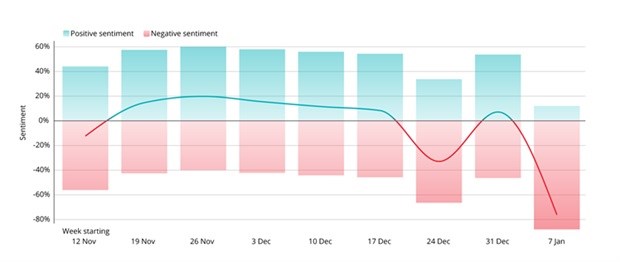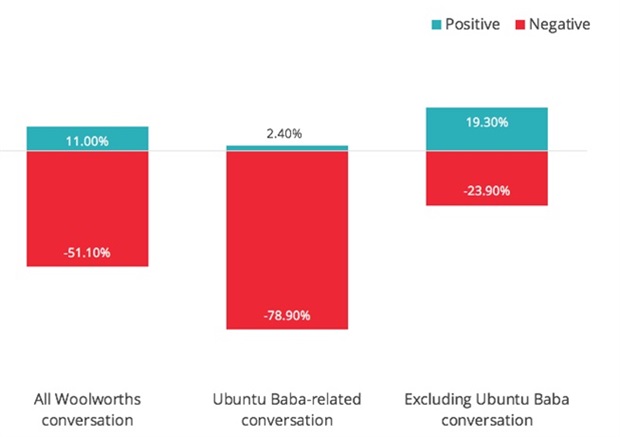
Related
Top stories






LifestyleWhen to stop Googling and call the vet: Expert advice on pet allergies from dotsure.co.za
dotsure.co.za 2 days
More news




















Fourteen percent of consumers posting on social media about the incident cited previous instances where the retailer had allegedly copied other products. 170 authors who identified themselves as mothers, contributed 3.6% of total conversation, of which 80% was negative.
For the analysis, BrandsEye, combining machine learning algorithms with crowds of real people, collected and analysed 19,482 social media posts, from 1 to 14 January 2019. Over the 14 day period analysed, the Ubuntu Baba conversation comprised 46.5% of total Woolworths conversation.

BrandsEye’s topic level analysis surfaces the specific issues driving public sentiment. The most negative topic of conversation in this case, comprising 44% of the topics data, related to accusations of unethical behaviour by Woolworths. Consumers also expressed their negativity towards Woolworths’ own brands. Many accused the retailer of creating “knock-offs” of other products.
Staff conduct was also called into question when consumers learned that Woolworths employees had purchased two baby carriers from Ubuntu Baba months before the release of their similar product.
Fourteen percent of unique authors who spoke about the Ubuntu Baba incident noted that Woolworths has faced allegations of a similar nature numerous times, including the Frankie’s Soda incident.

BrandsEye found that 170 unique authors discussing the incident identified themselves as mothers in their Twitter bios. These mothers, past or prospective buyers of the baby products, contributed 3.6% to the total conversation volume and 28.5% to total engagement. More than 80% of conversation from these mothers was negative.
Net sentiment towards Woolworths reached its lowest point on 9 January when it announced it would meet with Ubuntu Baba designers. Consumers responded with multiple questions on Woolworths’ posts related to the baby carrier to which they felt Woolworths did not adequately respond. This initiated conversations between consumers, leading to increased negative sentiment and growing ethical concerns about the retailer.
In the two-week period, 83 authors of 4,402 stated their intention of boycotting Woolworths, many questioning how seriously Woolworths valued local entrepreneurs.